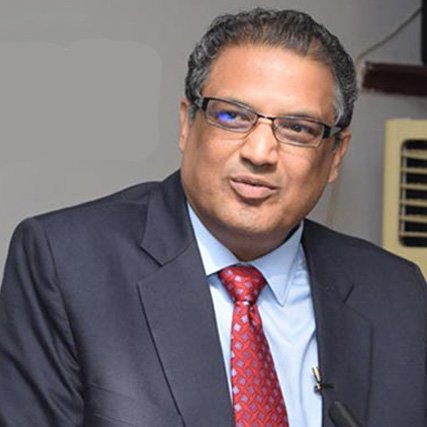I was under the illusion that my opinion was well-reasoned,balanced, moderate and reasonable, but when I had a heated discussion on Balochistan with the Chief Minister of Balochistan, Sarfraz Bugti, he rejected every argument of mine, rejected every historical event and even my analysis. Strongly disagreed with The truth is that they disagreed with everything I said. On the day of the explosion at the Quetta railway station, the topic of discussion with Chief Minister Bugti and his ministers was the unceasing terrorism in Balochistan. The conversation started with my question that military operations have been going on for more than 75 years, but instead of decreasing, terrorism is increasing, why is it so? I wanted to ask Sarfraz Bugti’s provincial ministers Ali Madd Jatak and Mir Shoaib Noshirwani immediately said where is the operation going, Sarfaraz Bugti said we say to do operation but the operation is not going I said that Punjabis and soldiers are being killed indiscriminately. Daily news is coming. Operation is going on, so this is the reaction. Sarfraz Bugti said that the operation is not happening, that’s why this terrorism is happening. If there is an effective operation, it will be remedied. I asked, what are our forces doing here? Sarfaraz Bugti replied that you are both Punjabi and Muqtadara confused on Balochistan issue. I quickly replied that the terrorists call us Punjabis exploiters and oppressors and then they kill Punjabis on this false charge and you who are against terrorists and allies of Muqtadra are also calling us confused. As if both sides of Balochistan do not trust us. The Chief Minister of Balochistan said that the Prime Minister called me a blocker to open the way for negotiations, so I replied that with whom should I negotiate, with Dr. Malik? They had come to me yesterday too. If they negotiate with the terrorists, their first demand is to liberate Balochistan, so should we accept their demand? I said that we feel guilty that we have been Operating since, we forcefully annexed Balochistan to Pakistan which led to this whole affair. Sarfraz Bugti said that you people have read the same history as written by the nationalists. The first thing is that Balochistan is a province formed after 1970. Balochistan had many parts before, the state of Kalat and there were small states. On the other side was the British Area under British rule. Mir Ahmed Yar Khan, the ruler of Kalat State, wrote in his autobiography that “I decided to merge with Pakistan after consulting with my colleagues. I wanted to take my colleagues with me to Karachi, but there was a lack of sources and messengers.” I could not do it because of which some colleagues disagreed.” I immediately referred to the history that the Nawab’s brother Abdul Karim Baloch had raised the revolt at the same time and the first military operation was conducted against him. Sarfaraz Bugti said that there was a police operation against the so-called rebellion of Abdul Karim Baloch, it was a very small incident which is exaggerated. Abdul Karim Baloch’s wife was Afghan, so Abdul Karim Baloch went to his wife’s country and settled after her departure, there was no freedom movement and no soldiers. Where was I going to believe these things that were a part of my thinking for decades, I opened my mouth and said Sardar Nowroz Khan’s.Betrayed and killed on the pretext of peace, this incident added to the bitterness of Balochistan. Sarfraz Bugti then denied my story and said that Norooz Khan was not brought down by the army from the mountains, but Norooz Khan’s son-in-law and Sardar Ataullah Mengal had gone there. I don’t trust you, I won’t come down from the mountains on your words, you will deceive me, but I have faith in Ataullah Mengal, so Nowroz Khan came down on Mengel’s assurance, then Sarfaraz Bugti said with a smile that Attaullah Mengal’s part from history Why is it missing?
Where was I going to stop? I directly accused the Chief Minister. Sarfaraz Bugti said without getting angry that we meet the army during the day and the so-called nationalists meet them in the dark of the night. Why would General Zia-ul-Haq take land in Quetta and live there? These chiefs played games with the army for a long time. One chief would sit on the mountains and the other cousin would join the government. After some time, the government cousin would arrange to bring his chief down from the mountains. And like this their four or five years would pass well, if the money ran out, then the same cycle would be repeated and more money would be taken. Sarfaraz Bugti’s arguments were weighty, but my heart and mind were not accepting them. I felt the need to stop the continuous flow of blood in Balochistan, not to justify it. No argument, no dialogue can justify the disappearance of missing persons, hundreds of thousands of missing persons are such a tragedy in itself that condemning the act without going into the reasons is at least a humane response. Suicide bombing is the last desperate act of a nation or tribe. I cannot digest the murder of Nowroz Khan, the disappearance and death of Attaullah Mengal’s son in Karachi, and then the death of Khair Bakhsh Marri’s son on the Afghan border, despite the abundance of evidence. Unjust blood begets reaction and revenge, the final game being the death of old Nawab Akbar Bugti, but since then things have been out of control.
Despite all the disagreement with Sarfaraz Bugti, I have to agree with his analysis that the state and Punjab are confused about the military operation in Balochistan, both the right and left wing consider the exploitation of Baloch as illegitimate. The party and Tehreek-e-Insaf have both backed down in support of a new military operation after the military operation in East Pakistan. Now the time has come for the state and the politicians to come together and find a solution to the problem by declaring Balochistan as the most priority issue. The flowing blood and the moans of the oppressed on both sides are warning Punjab and the state that there will be darkness soon.
Note: This is the translation of his Urdu column published in Jang
 Colors
Colors  View Books
View Books 



